Come Visit Us!
Our organization is always open to visitors: if you want to visit our center as a person with disabilities, parent or just an interested person, just contact us here to schedule your meeting.
The story of our organization begins with the personal experience of our president, Maia Asakashvili: "My journey with people with disabilities began 32 years ago, when my son was born. At that time, I had no idea what the future held. My life changed, and over time I came to realize that along with the joy of motherhood, giving birth brought me immeasurable pain. Waiting for my son to utter the word “de-da” (mother, in Georgian), observing his every movement with unwavering hope, while medicine proved powerless, I have encountered numerous challenges and overcome significant obstacles.
In many cases, we faced instances where society displayed harsh and tactless attitudes, which hurt my son’s heart. In general, individuals with disabilities were subjected to ridicule.
During that time, as a young and inexperienced person, unsure of how to navigate this challenging situation, I found no one — no individual, no organization, no institution — who could offer assistance or at least give me information. As time went by, I realized that the most important thing for my son was to be part of society. However, the cold and uncivil treatment from society was an obstacle. When I decided to enroll my child in kindergarten, the manager explained that there were special institutions for children like mine, implying that my son could not be accepted. The doors of the kindergarten were closed. I felt lost, and there was no point in responding to the manager. I remember hiding my tears as I left the office, so my child would not see me crying. At that time, the concept of "social inclusion" did not exist in our country, and its meaning was unknown. The kindergarten manager refused us because my son had a disability. Eventually, we were directed to a special kindergarten, where my son took his first independent step.
I was navigating blindly, relying on trial and error. I searched for and read all relevant literature to gather as much information as possible about my son's condition. Eventually, it was time for him to enter school, and it was a painful and uncertain period for me. During that time, there was a medical pedagogic commission that assessed children's abilities and assigned them to different institutions. Back then, as I mentioned earlier, the term "social inclusion" held no meaning, and there was no inclusive education. General education schools were closed to children with disabilities. I witnessed firsthand the stress experienced by children with disabilities and their parents. Determined to fight for my son's rights and those of other children, I gathered parents of children with disabilities. In 1997, we formed the "Association for Helping Children with Hearing and Speech Impairment," a parents' union. Since its establishment, the organization has undertaken several significant projects focused on education and advocacy for the rights of individuals with disabilities. Initially, we created an informational booklet titled "The Child Learns to Speak," which provided signs, symptoms, and guidance for parents to identify speech or hearing problems in their children. It also emphasized the importance of early intervention for a child's development. We distributed these booklets in maternity homes. Parents began to fight and advocate for their children rights. This period saw the existence of only two or three organizations for people with disabilities in Georgia. Together with other parents, we campaigned to eliminate the bureaucratic medical-pedagogical commission since we didn't want our children to be segregated and excluded from society. We organized integrated camps and established a school for young leaders. We also fought for changes in general education laws, as they did not allow children with disabilities to study in public schools. Initially, we sought directors who would help us open speech therapy groups for a few children, where speech therapists and special educators would work with them. With the assistance of the "Horizon" foundation, we established resource rooms and looked for "kind-hearted" directors who would involve our children with disabilities in small activities with other children. Even if it meant a separate room, we wanted them to participate in sports or singing lessons alongside other children. We faced significant resistance, as some parents did not want children with disabilities to study alongside their own. Eventually, we found a "kind-hearted" director, at the 24th public school of Tbilisi, who allowed the integration of children with disabilities into the school's educational process. The 24th public school in Didube-Chugureti and the German school in Telavi were selected as pilot schools. These two schools were adapted, resource rooms were established and equipped, and meetings were held with parents and teachers to discuss the benefits of inclusive education.
Simultaneously, we worked with the Ministry of Education, overcoming any obstacles that came our way. Parents supported each other, and together we opened doors to protect our children's rights. As a result of our collective efforts, the concept of "inclusive education" became part of the general education laws. This ensured that all children with disabilities had the opportunity to receive general education, and their access to education was no longer dependent on the goodwill of principals. Parents were given the freedom to choose where their child could study. My son successfully graduated from a public school, and attending school brought him great accomplishments. Parents who accept and embrace their children as they are, closely observing their reactions and celebrating every active step they take, can achieve remarkable results.
Everything our organization has done is based on practical experience.
Many years have passed, and much has changed. I have also grown alongside my son. We have encountered numerous challenges, including society's attitudes, unaccommodating environments, untrained teachers, outdated teaching methods, uninformed parents, obsolete textbooks, and the lack of individualized curricula. These issues did not meet my expectations as a parent. Gradually, I overcame the barriers that often accompany raising children with disabilities. This hidden, everlasting, and declared pain enabled me to establish the Parents' Union "Association for Helping Children with Hearing and Speech Disorders", the information newspaper "The Parent’s Voice," the wooden social enterprise "Skhivi",and the radio broadcast "People with Different Abilities".
More specifically, in 2016, within our organization, we established a wooden enterprise called "Skhivi" (which means “ray” in Georgian) using non-formal education methods and approaches tailored to the individual needs of youth with disabilities. This marked the beginning of a pilot project to support employment for individuals with intellectual disabilities. At the workshop, individuals with disabilities learn to create environmentally friendly wooden toys and souvenirs.
Our organization's purpose is to protect the rights of individuals with hearing, speech, intellectual, psycho-emotional, multiple, and physical disabilities. We strive to promote their full and harmonious development through education, arts, sports, vocational training, and employment opportunities.
We have actively participated in advocating for the rights of people with disabilities, from inclusive education and the reform of the national educational system, to employment, social entrepreneurship, and capability systems.
One of our significant achievements was the abolition of a limitation of legal capacity of individuals with disabilities in the country. This result stemmed from the advocacy efforts of my son, Irakli Kemoklidze, and myself.
On October 8, 2014, the Constitutional Court made a decision (N2/4/532014) declaring the existing regulations limiting the capacity of individuals with mental and intellectual disabilities unconstitutional.
This court decision served as a pivotal moment that laid the foundation for a comprehensive reform of capacity regulation in Georgia.
It was my son's lawsuit and court decision that became the catalyst for reforming the legal capacity system in the country and transitioning to a social model.
In 2021, our organization faced the loss of one of its founders and active members, Irakli Kemoklidze. To honor his memory, our social enterprise was renamed "Skhivi - Irakli's Wooden Workshop."
And our organization is now known as "IKA - Association of People with Hearing, Speech and Intellectual Disorders”.
Parents are one of the most important resources and among the experts the state should rely on. Parents need support from the state.
The three-decade-long struggle of parents of children with disabilities, including our organization and the parents' movement, has brought about significant changes in the country, both at the legislative and executive levels. This is an irreplaceable history. Many organizations have been founded since then, and active parents have emerged. Today, we take great pride in our achievements. With unity and solidarity, I believe that we can bring about even more positive change for the future of people with disabilities and their parents.
I would like to express my gratitude to all my friends, colleagues, ordinary parents, and strangers who have supported me and provided constant encouragement since my tragedy. Your support has given me the motivation and strength to continue being part of our movement. After Irakli, I feel compelled to carry on the fight to honor his memory.
I have accepted this challenge, my friends. I have gathered my remaining strength to stand by your side once again, leveraging my professionalism and experience to help strengthen our movement.
Remember, the struggle always holds meaning, and it will undoubtedly yield results.
Let us stand together!"
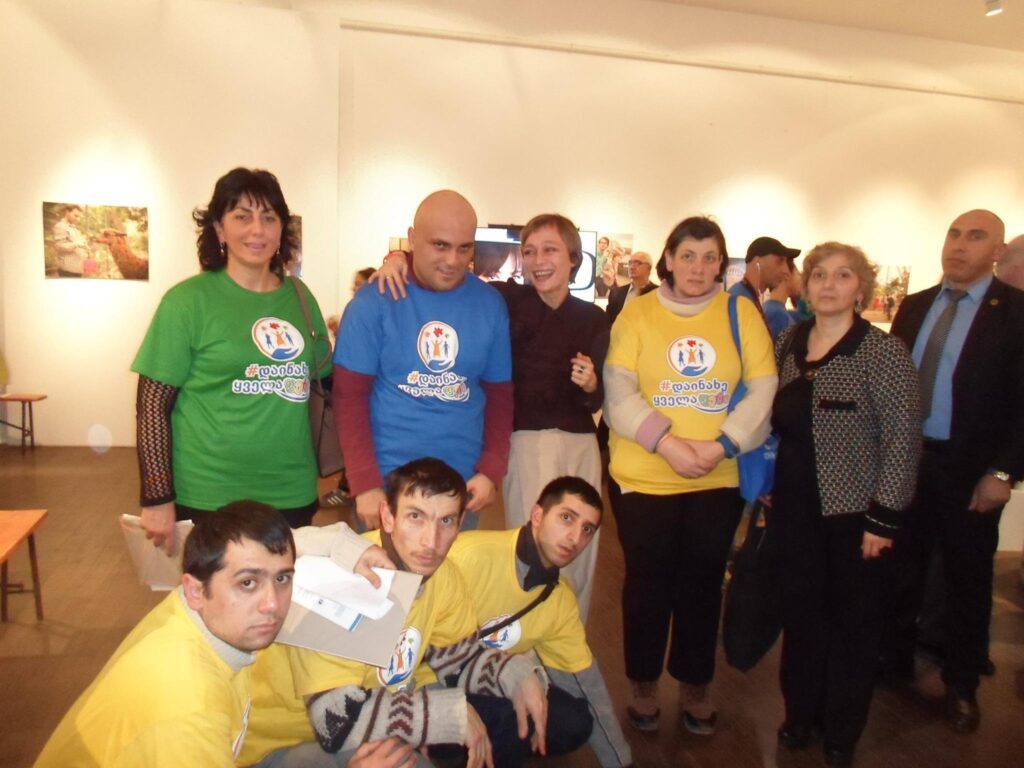
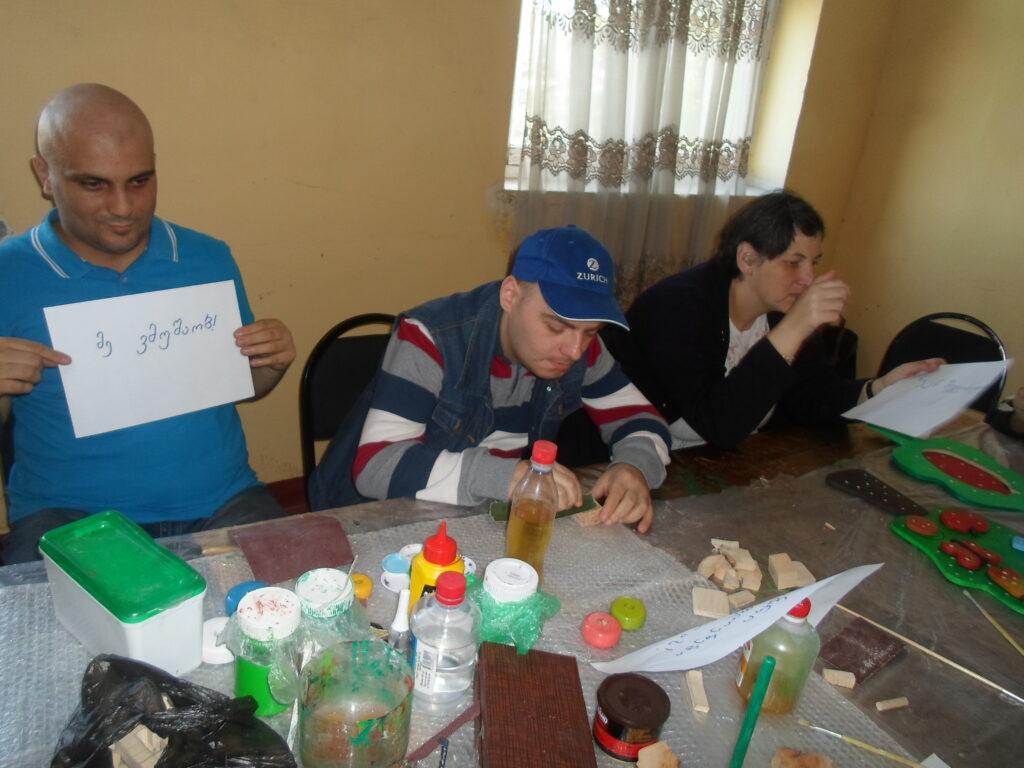
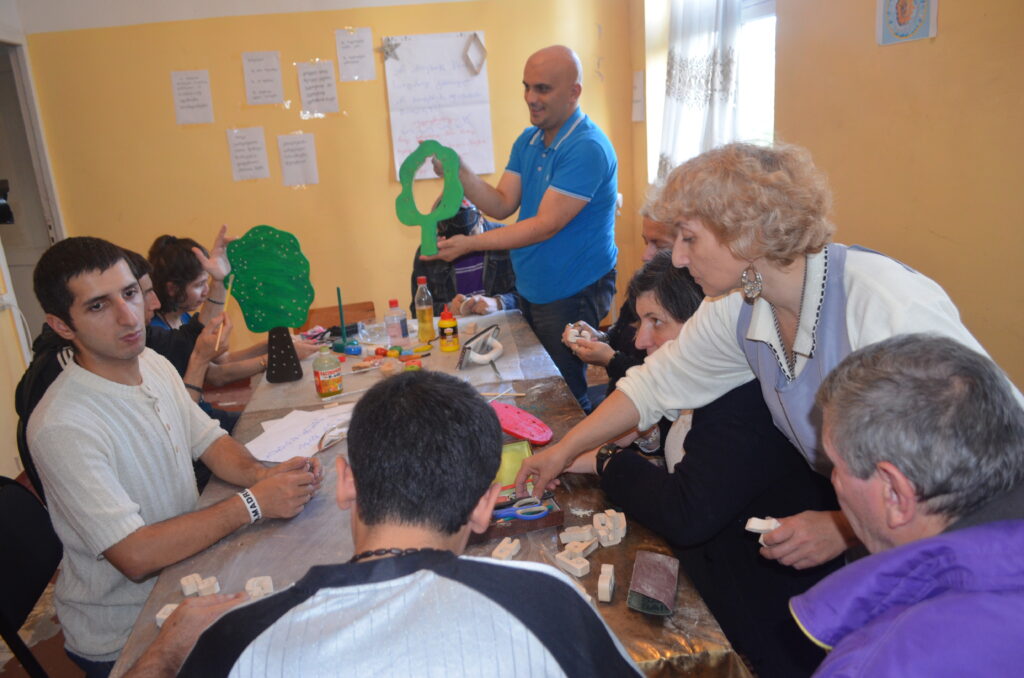
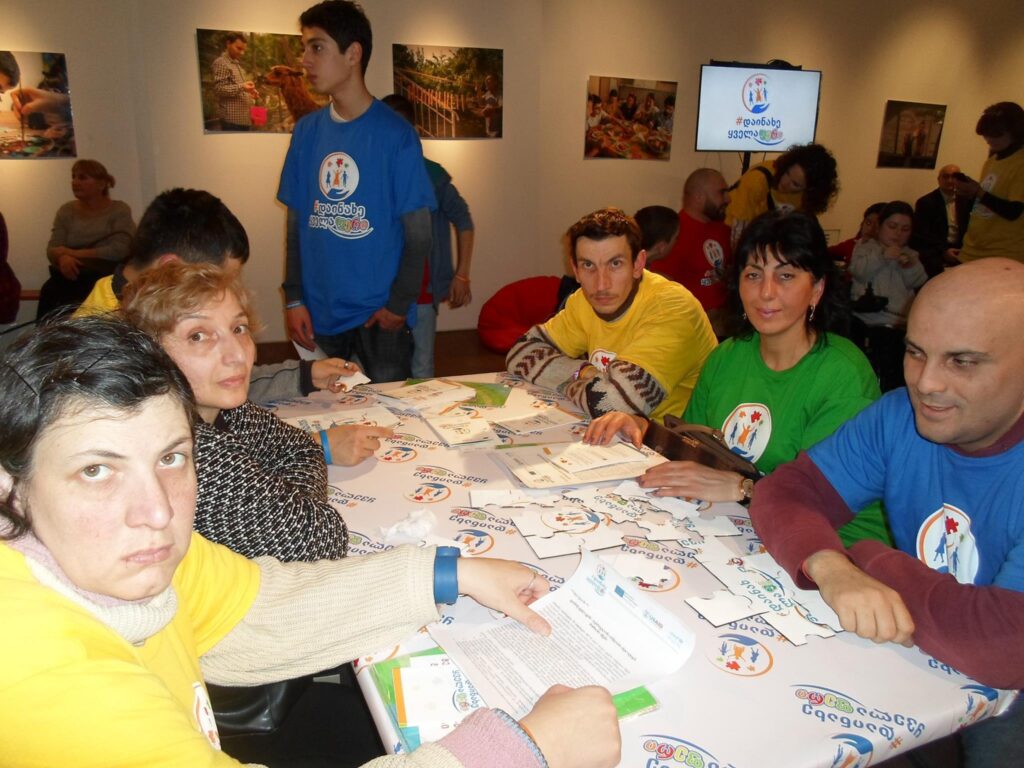
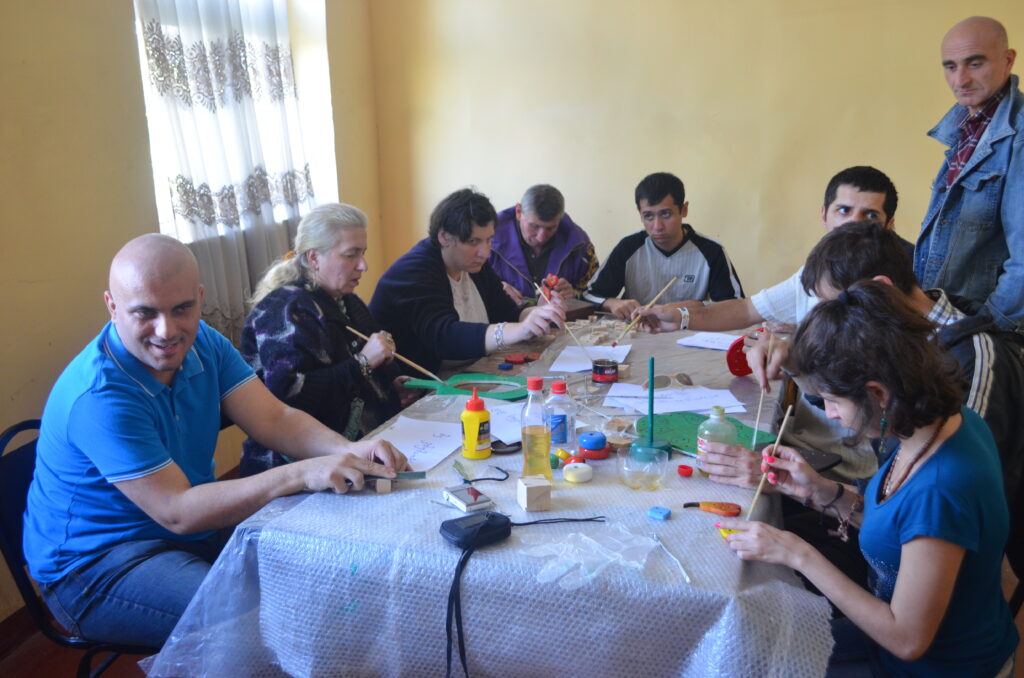
Our organization is always open to visitors: if you want to visit our center as a person with disabilities, parent or just an interested person, just contact us here to schedule your meeting.